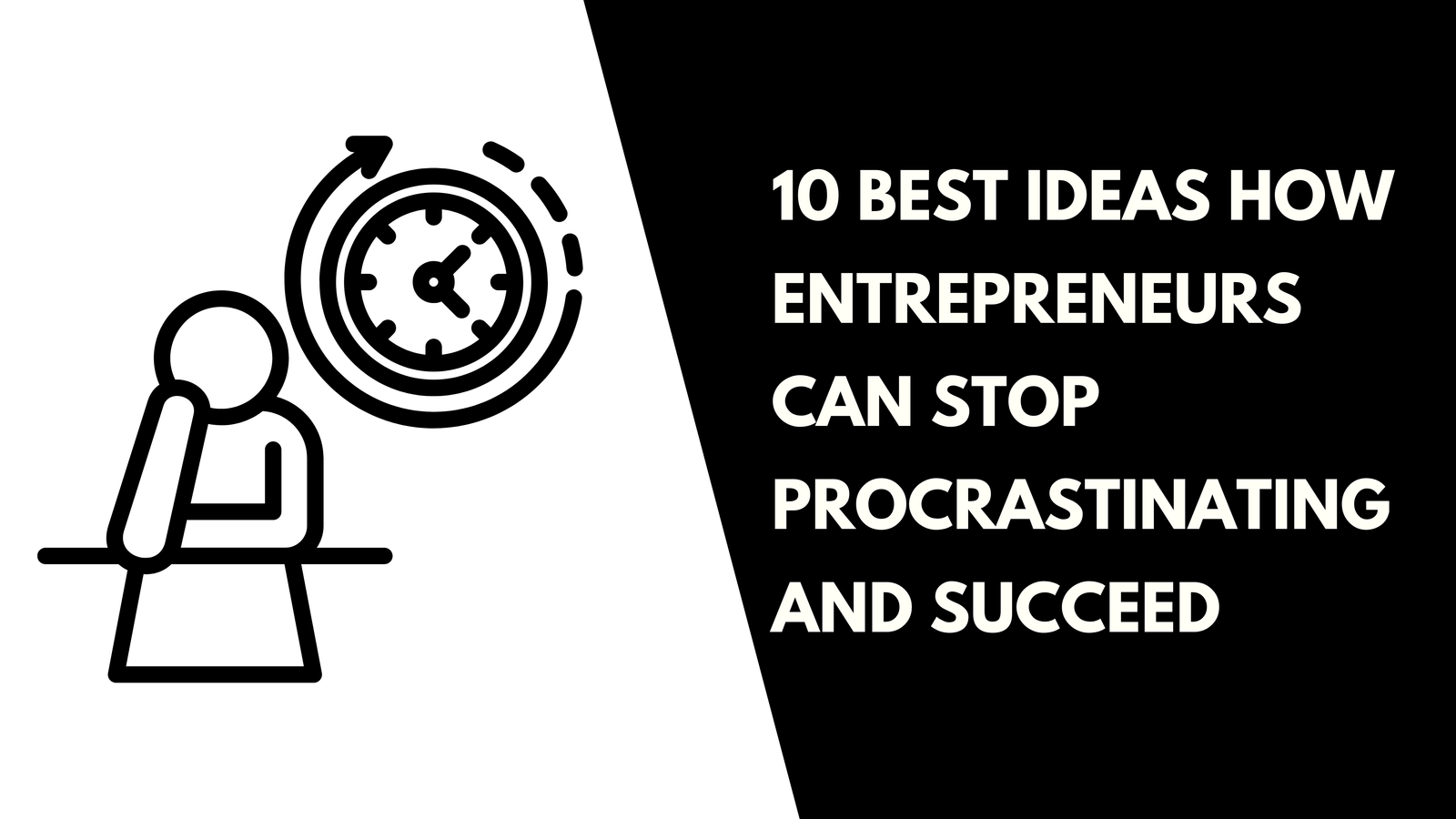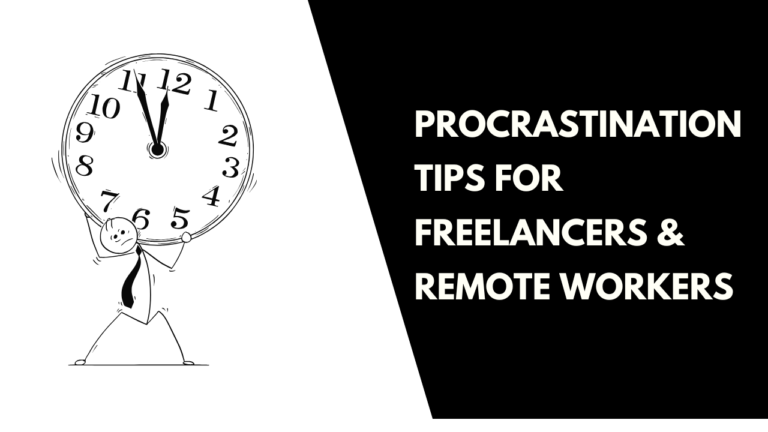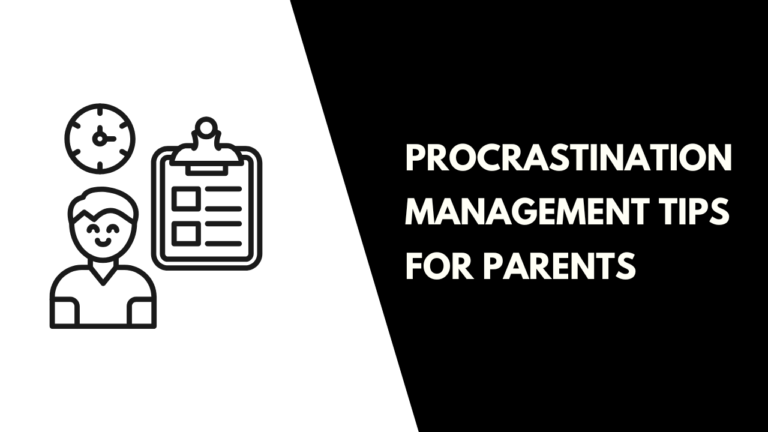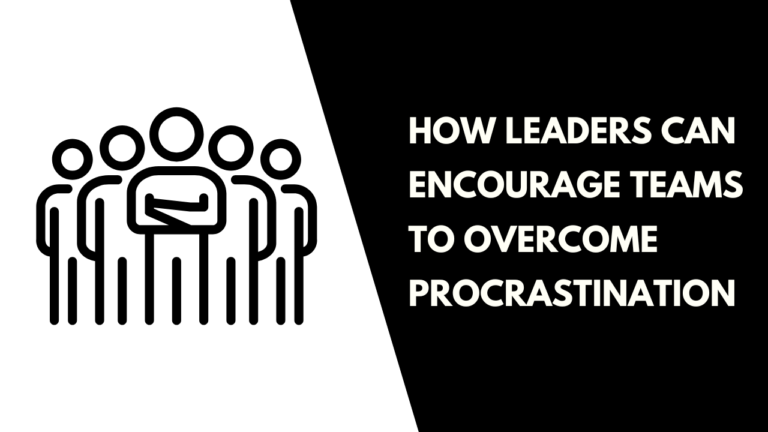How Entrepreneurs Can Stop Procrastinating and Succeed
10 Best Ideas How Entrepreneurs Can Stop Procrastinating and Succeed
Introduction
Table of Contents
ToggleProcrastination is an entrepreneur’s biggest enemy. It can hold back productivity, delay projects, and prevent growth. As an entrepreneur, staying focused and taking consistent action is key to achieving success. But how can entrepreneurs stop procrastinating when there’s so much to juggle? In this article, we will explore the 10 best ideas on how entrepreneurs can stop procrastinating and pave their way to success.
1. Understand the Root Cause of Your Procrastination
Why Entrepreneurs Struggle with Procrastination
Recognizing the reasons behind your procrastination is the initial step in overcoming this pattern. For entrepreneurs, procrastination often stems from fear—fear of failure, perfectionism, or overwhelm.
Example: An entrepreneur might delay launching their product because they fear it won’t be perfect. They may procrastinate, tweaking designs and marketing strategies endlessly, rather than moving forward.
Solution: Identify the core cause. Is it fear, lack of motivation, or simply feeling overwhelmed? Once you understand why you’re procrastinating, it’s easier to come up with a targeted solution.
2. Break Large Tasks into Smaller, Manageable Pieces
Small Wins Lead to Big Results
Entrepreneurs often procrastinate because tasks feel too big and overwhelming. When faced with an entire business plan or launching a new service, it’s easy to freeze.
Example: Launching a new website might feel like an insurmountable task. Instead of tackling the entire project, break it down into smaller tasks like selecting a template, creating content, and choosing a hosting service.
Solution: Break large projects into smaller chunks and focus on completing one small task at a time. Each small victory will build momentum and make the overall task seem more achievable.
3. Set Clear and Realistic Goals
Clarity and Focus Help Entrepreneurs Stay on Track
Setting clear goals helps entrepreneurs focus their efforts and prioritize what needs to be done. When goals are not well-defined, it becomes easy to lose focus or lose motivation.
Example: An entrepreneur might say, “I want to grow my business.” This goal is vague and can be overwhelming. However, a clearer goal might be, “I will gain 100 new customers in the next 30 days by running a targeted ad campaign.”
Solution: Set SMART (Specific, Measurable, Achievable, Relevant, and Time-bound) goals. This structure provides direction and breaks down larger tasks into actionable steps, making it easier to get started and stay on track.
4. Use Time Blocking to Manage Your Day
Maximize Productivity with a Structured Schedule
One of the best ways to avoid procrastination is to manage your time effectively. Time blocking is a method where you allocate specific periods for various tasks in your schedule.
Example: As an entrepreneur, you might block off 9-11 AM for focused work, 11 AM-12 PM for meetings, and 12-1 PM for lunch. By allocating time for specific tasks, you remove ambiguity and keep yourself on track.
Solution: Use a digital calendar or planner to set aside time for each task. Stick to these time blocks as much as possible to create a sense of structure and urgency, reducing the temptation to procrastinate.
5. Create a Productive Environment
Surround Yourself with What Inspires Action
The environment, both physical and digital, significantly impacts your productivity. A cluttered desk or a disorganized computer can be a breeding ground for procrastination.
Example: An entrepreneur working in a cluttered space might feel distracted or stressed, leading them to avoid tackling important tasks.
Solution: Clean and organize your workspace. Remove distractions and keep your workspace focused on productivity. This also means organizing your digital workspace—keep files and emails organized so you can easily find what you need without wasting time.
6. Eliminate Distractions
Distractions Are the Procrastinator’s Best Friend
Entrepreneurs are often distracted by social media, emails, or even personal issues. Distractions make it harder to focus and get work done.
Example: An entrepreneur might spend 30 minutes scrolling through social media instead of working on their new marketing plan. This can result in lost time and overlooked opportunities.
Solution: Use tools like website blockers or set up a designated work zone where distractions are minimized. Disable notifications, close unneeded tabs, and set up an environment free from distractions.
7. Hold Yourself Accountable
Accountability Increases Motivation
Accountability is a powerful tool in combating procrastination. Entrepreneurs can hold themselves accountable by sharing their goals with others or tracking their progress regularly.
Example: If you tell a mentor or business partner about your goals, you’re more likely to follow through because you know someone else is expecting updates.
Solution: Set up an accountability system—whether it’s through regular check-ins with a business partner or tracking progress with a productivity tool. Knowing someone is watching can push you to stop procrastinating and take action.
8. Embrace the Pomodoro Technique
Work in Focused Sprints to Maintain Momentum
The Pomodoro Technique is a time management method that involves working in short, focused intervals followed by a break. This helps entrepreneurs avoid burnout and stay productive.
Example: Instead of trying to work for hours at a time, use a timer to work in 25-minute intervals, followed by a 5-minute break. This makes tasks feel less daunting and keeps your mind fresh.
Solution: Set a timer for 25 minutes of focused work, then take a 5-minute break. Repeat this process, and after completing four sessions, take a longer break.
9. Reward Yourself for Completing Tasks
Positive Reinforcement Drives Productivity
Entrepreneurs who procrastinate often do so because they feel the work ahead is too monotonous or boring. A little reward can go a long way in motivating you to complete tasks.
Example: After finishing a challenging project, reward yourself with something you enjoy—a coffee break, a walk, or an episode of your favorite show.
Solution: Create a reward system for yourself. After completing a task, reward yourself with something small. This reinforces positive behavior and helps overcome procrastination.
10. Practice Self-Care and Stress Management
Maintain Mental and Physical Health for Peak Performance
Procrastination is often linked to stress, burnout, and poor mental health. Entrepreneurs who neglect their well-being are more likely to put off important tasks.
Example: An entrepreneur who feels overwhelmed by long working hours might avoid tackling their to-do list because they’re physically and mentally exhausted.
Solution: Incorporate self-care practices such as exercise, meditation, and proper sleep into your routine. Managing your stress levels and maintaining a healthy work-life balance will keep procrastination at bay.
Conclusion
Procrastination doesn’t have to be a roadblock on your entrepreneurial journey. By implementing these 10 strategies, entrepreneurs can stop procrastinating, boost productivity, and ultimately achieve the success they desire. Start by understanding the root cause of your procrastination and then use techniques like goal setting, time blocking, and accountability to take consistent action. Remember, success doesn’t happen overnight, but with focus, discipline, and perseverance, you can make progress each day.
FAQs
How do I know if I’m procrastinating? If you’re putting off tasks, feeling overwhelmed, or avoiding responsibilities, you might be procrastinating. Recognize the signs early to take action.
Can I overcome procrastination completely? Overcoming procrastination is a gradual process. By adopting consistent habits and self-discipline, you can significantly reduce procrastination over time.
What should I do if I can’t stop procrastinating? Try breaking your tasks into smaller pieces, setting clear goals, and eliminating distractions. If the problem persists, seek advice from a mentor or coach.
Is procrastination a sign of a deeper issue? Sometimes, procrastination can be linked to fear of failure, perfectionism, or stress. Identifying the root cause is key to addressing it effectively.
Can technology help in stopping procrastination? Yes! There are many tools, apps, and techniques, like time trackers and website blockers, that can help you stay on track and overcome procrastination.
“Stop postponing your dreams! From Delay to Done is your ultimate guide to conquering procrastination. Grab your copy today on Amazon!






